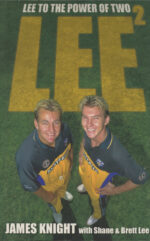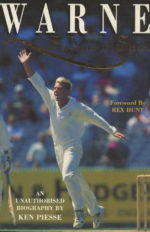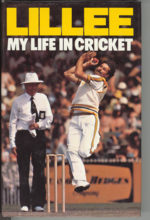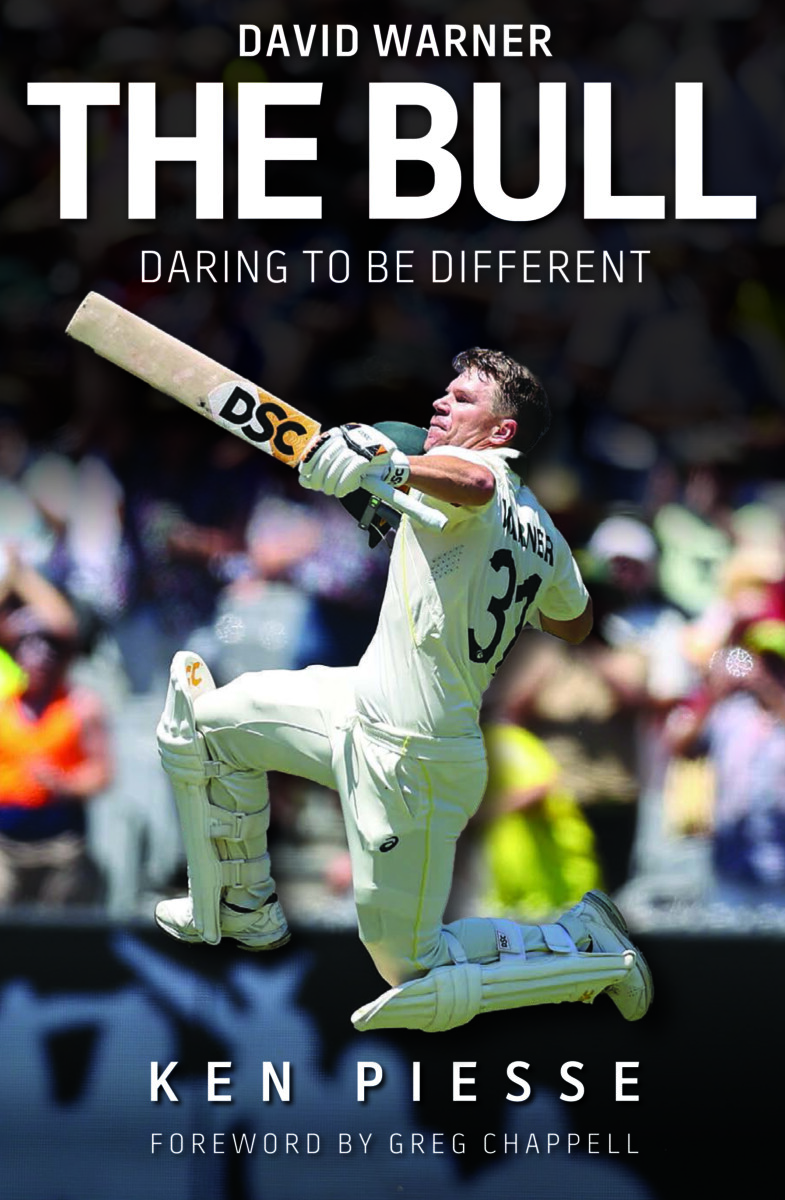Description
The just published softback version of this classic biography includes 284 pages and 16 pages of glossy pictures.
Here is a promotional blurb:
David Warner is cricket’s unchallenged multi-formats champion of the world.
His sheer skill, mercurial spirit and refusal to buckle and conform are intrinsic in his extraordinary journey and appeal. So are his rough edges, misadventures and unpredictability.
The driven young man from a Housing Commission background challenged convention and changed the way Test cricket is played.
His strike-rate is supreme among Australian openers and only one other player, Ricky Ponting, has made more centuries at international level.
Cricket icon Greg Chappell has provided the foreword to The Bull and says cricket is lucky to have seen a player with such intimidating command and presence.
This is the David Warner story, the highs and lows, the spats, the sledges… and the sandpaper.
ISBN 9781922810816
from Wilkinson Books, Melbourne… signed y the author
Additional information
| Year Of Publication |
|---|
1 review for Piesse, Ken – David Warner The Bull, daring to be different (softback)
You must be logged in to post a review.
Related products
-
Sale!

Nicholson, Rod – Merv Hughes, special price
Rated 0 out of 5$11.00$2.20 Add to cart -

Knight, James – Lee to the Power of 2
Rated 0 out of 5$16.50 Add to cart -
Sale!

Piesse, Ken – Warne Sultan of Spin
Rated 0 out of 5$10.45$5.50 Add to cart -

Lillee, Dennis – My Life in Cricket, signed and inscribed
Rated 0 out of 5$16.50 Add to cart



Ken –
Review by Barry Nicholls of ‘David Warner, The Bull, Daring to be different’
Most cricket fans will recall how David Warner burst onto the scene like no other. Promoted from Sydney Grade cricket to playing for Australia was quite the leap, not that it bothered the precocious 22-year-old, who scored an unforgettable 89 from 43 balls against South Africa. Having read Ken Piesse’s fine book David Warner, The Bull, Daring to be different, the words of Randy Bachman’s song, ‘You ain’t seen nothing yet,’ now spring to mind.
Beginning as a leg-spinning all-rounder, Warner’s talents were soon on display beyond the Matraville housing estate where he was raised. He played under-age cricket at Centennial Park and by the time he was 16 had debuted in A grade for Waverley Park. A move from Matraville Public School to Randwick Boys High to qualify for state and Australian schoolboy sides illustrated the ambitions Warner held.
Warner is never far from controversy. An early peccadillo results in a month-long suspension from Cricket Australia’s Centre of Excellence. As Greg Chappell reminds in his insightful foreword, ‘Genius comes at a cost.’ Genius at it turns out is also multi-layered as Warner’s unprivileged background building ‘a resilience and resourcefulness’ is also revealed.
While Warner gained world-wide attention with his blazing international T-20 debut, the transition to success at first-class level took time. Having learned to combine lusty hitting with patient defence, Warner evolved as a batsman capable of grinding out an innings as well as delivering pyrotechnics.
Warner’s wife Candice (nee Falzon) and her influence is rightly acknowledged in helping him break-through from the periphery to full Test status. From biffing Joe Root in a bar 2013 to a first Test century at the ‘Gabba against England six months later, Piesse reminds how rapidly Warner’s career took off once he was more disciplined and personally settled. By summer’s end a total of 523 Ashes runs at an average approaching 60, indicated that Warner’s new approach and mentoring from the freshly-minted Australian coach Darren Lehmann, had helped no end.
To publication date, Warner’s 45 international centuries across all three formats provides a testament to his wide-ranging abilities. There are many reminders of Warner’s place in Test history as Piesse notes ‘Warner is one of only four Australians to make a century before lunch on the first day of a Test match.’
As Warner’s belief in his ability spills to arrogance it causes further misdemeanours, (the most infamous, his role in the ball-tampering saga at Cape Town, 2018). His ‘license to sledge for Australia’ comes at great cost (including a one-year ban) as Warner takes mental disintegration to a new level. He was though on the receiving end. South Africa’s captain Faf du Plessis, observed ‘We decided that the bullies must be bullied.’
Test success in England has been largely elusive, where Warner averages 25 with a top score of 85. Stuart Broad had his measure, where he exposed Warner’s weakness against the moving ball in 2019, (10 knocks for 95). However, a triple-hundred against Pakistan at Adelaide Oval among other successes followed as Warner returned to form in Australia. As Warner enters his middle 30s there are valid questions raised about his future at Test level.
Ken Piesse has produced a stellar biography worthy of the career it relates.
The prose in The Bull shines,
‘Warner changed the pace of Test cricket long before Bazball. His sheer skill, mercurial spirit and refusal to buckle and conform are intrinsic in his remarkable ride. So are his rough edges, misadventures and unpredictability. They are his weakness and his strength.’
For the statistically minded there is a comprehensive summary (from Ric Finlay) covering Warner’s performance at all levels of the game.
Piesse continues to chronicle important tales in Australian cricket with minimal fanfare and high quality. His books, including this one, are impeccably told with great insight and understanding demonstrating an acute cricketing knowledge.
Barry Nicholls has written about cricket for three decades. His latest book revisits Australia’s 1972 tour of England.